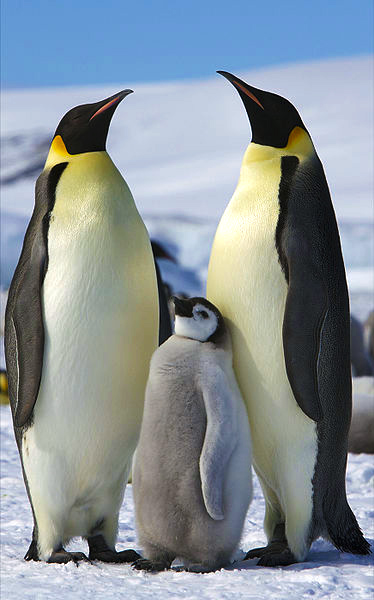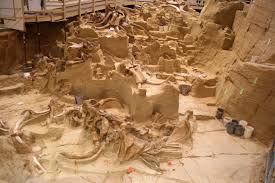Penguins are one of the more popular animals. Whenever new penguin exhibits open at zoos, people line up to see these black and white birds feed and swim. Most of the penguins that we see today are nowhere near as large as a human, but a fossil recently discovered by scientists shows that some penguins were once as large as people.
An amateur paleontologist was doing an excavation on the South Island of New Zealand when he discovered the fossilized leg bones of some ancient penguins. Based on the size of the leg bones, the penguins are believed to have stood 1.6 meters in height or about five feet and two inches. This makes the new species of penguin over one foot taller than the emperor penguin which is the largest penguin species currently in existence.
After the fossilized penguin bones where discovered by the amateur paleontologist, a team of scientists from the Canterbury Museum located in Christchurch, New Zealand examined the bones to determine if they were from an as yet unknown species. The scientists determined that the bones were from an undiscovered species, and the new penguin species is now known as Crossvallia waiparensis.
When the scientists examined the leg bones of the new species, they discovered that the feet of the new species differed from modern penguins. The scientists believe that this newly discovered species used its legs much more extensively to swim than do penguins which are still in existence.
Crossvallia waiparensis is not the first giant penguin species to be discovered. Back in 2000, scientists discovered another large penguin species in Antarctica. Like the species just found in New Zealand, the penguin found in Antarctica would have lived in the Palaeocene Period.
Scientists speculate that the giant penguin species became extinct several million years ago. This is believed to have occurred because toothed whales and seals arrived in the area where the giant penguins lived. These ocean predators hunted the giant penguins to the point of extinction.












